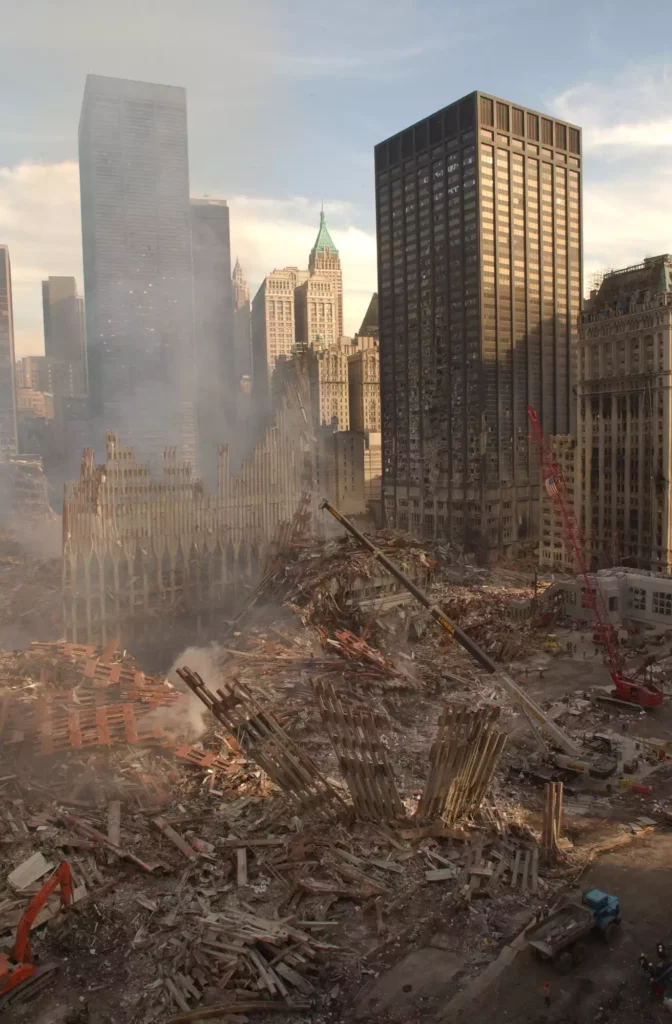
This year marks the 20th anniversary of the 9/11 attacks, when terrorists hijacked four airplanes and turned them into missiles aimed at major U.S. landmarks. The attacks resulted in the deaths of nearly 3,000 people and continue to shape our world. The library has developed programs and resources to recognize this year’s anniversary. In assembling these materials, we’ve been thinking about how to understand the significance of 9/11 from today’s perspective.
The 20th anniversary is occurring against the backdrop of a challenging, historic year. In some ways, the parallels between the COVID-19 pandemic and the events of 9/11 are striking: They both constitute collectively experienced, traumatic events. They both are generation-defining. They both have massive political, social, economic and cultural implications. And they both have spurred a rush to place blame, including in some cases through the demonization of certain groups. The 9/11 attacks, however, were contained to one horrific day, rather than consisting of a constantly shifting crisis sustained over more than a year. And while COVID-19 is a public health disaster precipitated by an invisible virus (though still intersecting with innumerable systemic inequalities), the 9/11 attacks were carried out by a group of people actively making choices — individuals affiliated with a terrorist network intentionally aiming to cause death, pain and mayhem.
These parallels encourage us to use both historic events as a lens for considering how we remember and interpret the past. Someday, there may be a Museum of COVID-19. What would the exhibition text say? What objects would be on display? How would the museum depict different people, governments and private organizations? Similarly, in the 20 years since the 9/11 attacks, we have had to make sense of them — even as they continue to affect us. How should we remember the events of 9/11? How do we explain what happened, especially to younger generations with no direct memories of that day? What makes 9/11 relevant to us now?
As a repository of knowledge and promoter of civic discourse, the library sees anniversaries of historical events as opportunities for learning and critical thinking. In that spirit, this year the library is offering varied methods for interpreting 9/11 history, including the display of a poster exhibition produced by the National September 11 Memorial & Museum, a book list highlighting reliable sources, an online resource guide that includes lesson plans for educators, and a staged reading of a new play about 9/11.
We welcome you to take a look at these offerings and consider the context behind 9/11, the complexities of that day and its many ongoing legacies.
by Madeleine Rosenberg
Photograph by Andrea Booher, Courtesy of the National Archives and Records Administration
